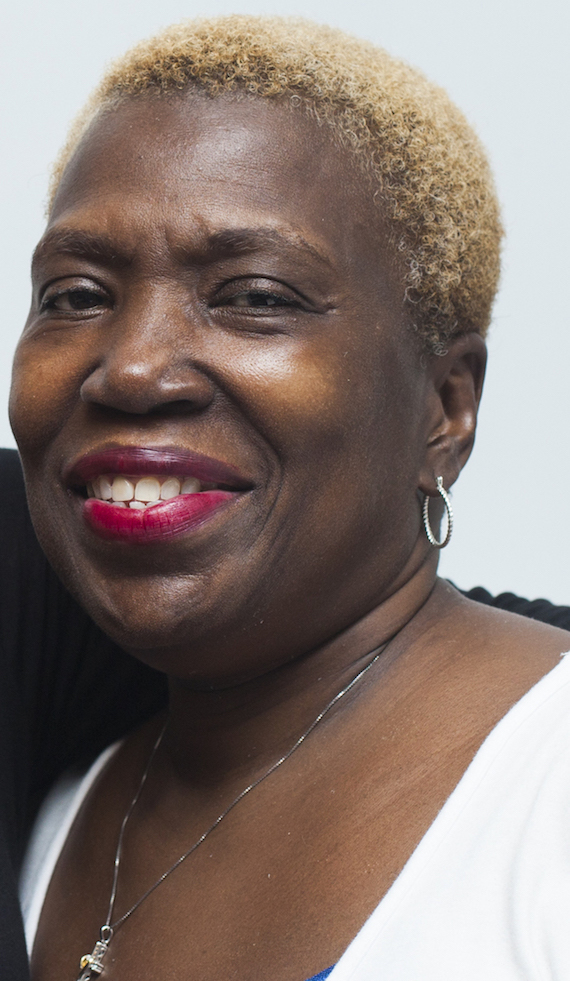
Robbyne Wiley
I started smoking crack in 1980 after I was hit by a drunk driver and became disabled. That was a real trauma for me.
After the accident, I was ashamed of my body. The damage to my hip caused me to walk with a severe limp. I just wanted to hide. Crack helped me do that.
Because of my addiction, my two middle children were placed in the child welfare system for three years. My youngest child was removed at birth and remained in foster care for five years.
Let’s Not Repeat the Past
Thirty-two percent of children entering foster care in 2015 were placed because of parental drug abuse, and states around the country have seen the number of children in foster care rise in ways they haven’t seen since crack because of the new drug problem in our country today—opioids.
I’m tired of drugs destroying families.
On June 20, the House of Representatives passed a bill that would change the way we deal with drug addiction treatment and recovery. If passed in the Senate, the law would make it easier to keep parent and child together when a parent resides in a drug treatment program.
The bill would allow states to receive a full federal match for the child’s living costs. Right now, states only receive a match of federal funding when a child is placed in foster care during a parent’s treatment.
I needed this law during my addiction. I would have gotten my life together much sooner if I knew that my kids and I could have stayed together while I got treatment.
I Needed Help
I remember one night, sometime around 1985 or ’86, I said to myself, “I’ve got to get help.”
I was tired and fed up with my crack use and the things I deprived my children and me of because of it.
So many times I would write a list of the foods and things we needed. But once I cashed my check, I would go straight to the crack spot and then the liquor store. I would buy a few grocery items for my children—a box of cereal, milk, ravioli. But most of it would go to drugs.
I thought about how sad my son often looked. One time, while we were on the way to an appointment, he pointed to a brownstone and said to me, “I’m gonna live in a building like that when I’m grown up.”
I thought about my daughter, too. I would always see such concern in her face when she said, “Mommy, I’m gonna be a doctor when I grow up so I can fix your leg.”
I knew I needed help so my children could live a better life and fulfill their dreams. I wanted to call child welfare or some type of helpline.
Paralyzed by Fear
In the neighborhood I lived in, I knew a lot of people addicted to crack, but I didn’t know anyone that had cleaned up their act and got on a better path. I told myself, “I’m gonna be that person.”
But then the negative thoughts snapped me back. I thought that if I reached out for help, child protection would come to take my children. The fear of losing my children paralyzed me. So I thought, “Oh well, I might as well finish getting high.”
After that, I thought about getting help a couple of times a month. But I didn’t know where to go or who to call.
Then in 1991, child protective services took my baby right from birth. They took my other two children two years after that.
There are other parents out there right now who are addicted to opioids that are not seeking help because, like me, they are afraid of losing their children to the system.
This legislation would tell parents, “As long as you’re trying to get on the right path, you don’t have to be concerned about your child being removed.”
Keeping the family together during treatment helps children as well. Some children feel that their parent’s addiction is their fault. Some children feel that getting high all the time is a normal way of life. Everyone in the family needs help understanding why substance abuse is in their lives and how they can recover.
Recovery Is Possible
In 1993, I was living in a shelter when staff asked if anyone was interested in going to a rehab program called Willow Project Return. I raised my hand and said, “I wanna go!”
I stayed at Willow for six months. I learned that my addiction was connected to pain, and I learned that despite my pain, I could cope without drugs or alcohol. I learned that I could live my life even though my accident left me disabled. And I realized that I’m a loving person who has a lot to offer others, especially my children.
I’ve been clean for 24 years. I can actually say I am that person who got on a better path. Still, I can’t help but think how this bill could have helped me during my addiction. I would have asked for help sooner and my kids would have been able to stay with me during treatment instead of being in foster care for all those years.
